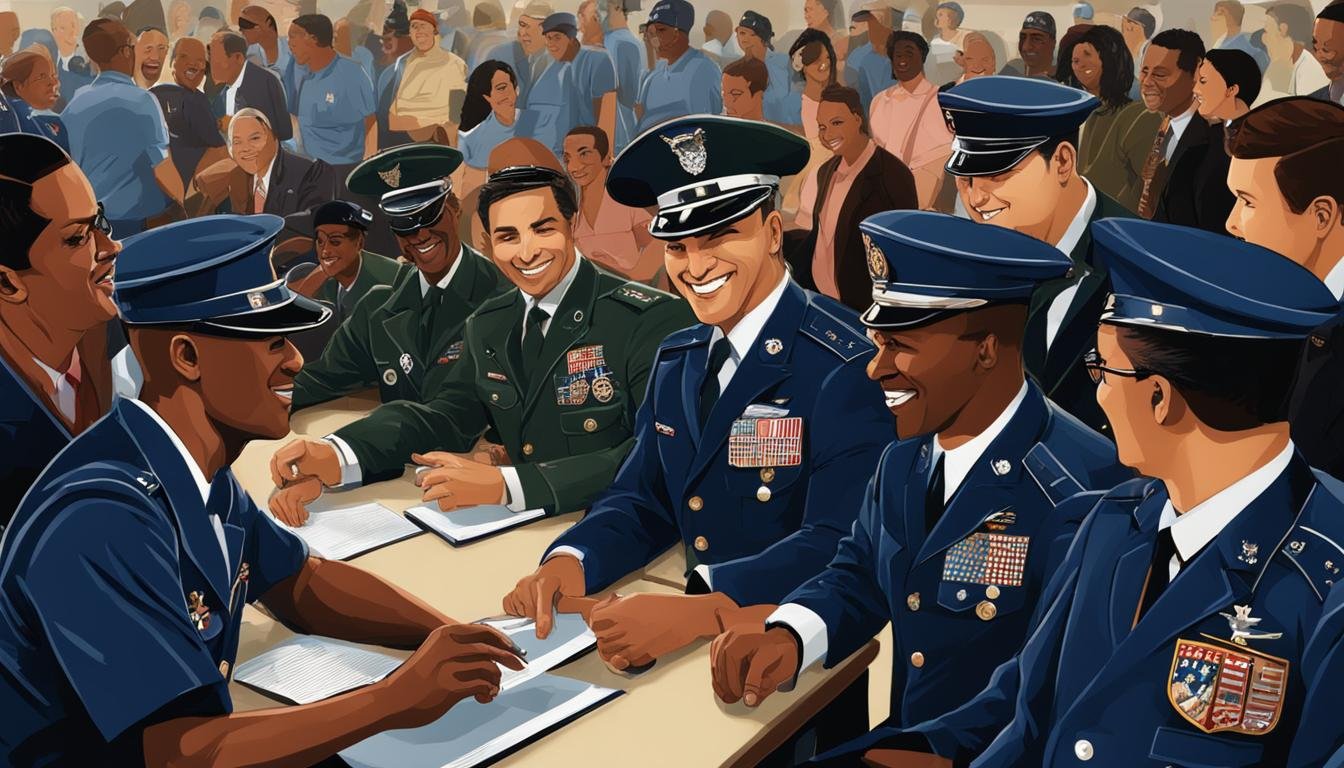Many veterans and active-duty service members choose to pursue higher education to enhance their post-military career opportunities. Taking advantage of your military experience and converting it into college credits can help you fast-track your college education and gain a competitive edge in the job market.
Transferring your military experience to college credits may seem like a complex process, but with the right guidance, it can be made simpler. By leveraging resources such as the Joint Services Transcript (JST) and understanding the eligibility criteria, you can effectively translate your military training and knowledge into recognized academic achievements.
In this article, we will guide you through the process of converting your military experience to college credits, offering valuable tips and insights along the way. Whether you’re considering pursuing a degree after your service or looking to advance your career, this guide will help you navigate the conversion process and make the most out of your military background.
Key Takeaways:
- Transferring military experience to college credits can enhance your post-military career opportunities.
- The Joint Services Transcript (JST) is a valuable resource for converting military experience into recognized college credits.
- Converting military experience to college credits provides savings on education costs and offers a competitive advantage.
- Understanding the eligibility criteria and utilizing available resources can simplify the process of transferring military experience to college credits.
- By successfully converting military experience into college credits, you can effectively transition from service to furthering your education and future career success.
How to Use the Joint Services Transcript (JST)
The Joint Services Transcript (JST) is a comprehensive document that translates your military experience into college credits. It provides a standardized way for colleges and universities to evaluate your military training, education, and occupational experiences. By understanding how to effectively use the JST, you can maximize the transferability of your military experience to college credits and expedite your path towards a degree.
Gathering Your JST
To access your JST, you will need to visit the JST website and create an account. Once logged in, you can request your official transcript to be sent directly to your chosen educational institutions. It is important to ensure the accuracy of your personal information and military experience details in your JST to prevent any delays or discrepancies in credit evaluations. Additionally, keep in mind that the JST is typically updated every year, so it is essential to request the most recent version whenever you are applying for college credits.
Working with Your Academic Advisor
When you receive your JST, schedule a meeting with your academic advisor at your chosen educational institution. Your advisor will guide you through the process of evaluating your military experience for college credits. They will review your JST, identify applicable credits, and help you create a roadmap towards your desired degree. Your academic advisor’s expertise will ensure that you make the most of your military experience and optimize your credit conversions.
It is important to remember that each college or university has its own credit transfer policies. While the JST provides a standardized evaluation of your military experience, the final decision on credit conversion lies with your chosen educational institution. Collaborating with your academic advisor will help you navigate the specific requirements and expectations of your chosen college or university.
Expediting Your Degree
By leveraging your JST, you can potentially reduce the time and cost required to obtain your college degree. The credit conversions from your military experience may allow you to skip certain prerequisites or even fulfill entire course requirements. This not only accelerates your progress towards graduation but also enables you to focus on advanced coursework or specialized studies in your chosen field. Take advantage of the JST and work closely with your academic advisor to streamline your educational journey and achieve your degree in a more efficient manner.
Table: JST Credit Conversion Examples
| Military Course | College Credit Equivalent |
|---|---|
| Basic Leadership Training | 3 credits |
| Technical Skills Training | 6 credits |
| Combat Experience | 9 credits |
| Specialized Military Occupation | 12 credits |
Table: The table provides examples of how military courses and experiences can be converted into college credits. It is important to note that credit conversion may vary between institutions and degree programs. Consult with your academic advisor for a personalized evaluation of your military experience for college credit conversion.
By utilizing the Joint Services Transcript (JST) and understanding the credit conversion process, you can effectively translate your military experience into recognized academic achievements. The JST serves as a valuable tool in expediting your path towards a college degree, saving you time and potentially reducing the cost of your education. Collaborate with your academic advisor to ensure a smooth credit evaluation process and maximize the transferability of your military experience. With the JST as your guide, you can confidently pursue higher education and advance your post-military career.
Benefits of Converting Military Experience to College Credits
Converting your military experience to college credits offers several significant benefits that can make a positive impact on your education, career planning, and long-term success. By taking advantage of the military learning you’ve acquired, you can save time and money in pursuing your degree while gaining a competitive advantage in the job market.
1. College Credit Eligibility
One of the major advantages of converting military experience to college credits is the eligibility it provides for college-level courses. Many colleges and universities recognize the value of military training and experience, allowing you to earn credits towards your degree requirements. This recognition not only saves you time but also opens up opportunities to explore more advanced coursework in your chosen field.
2. Savings on Education
By transferring your military experience into college credits, you can significantly reduce the cost of your education. Since you won’t need to enroll in certain introductory courses, you can skip the tuition fees associated with those classes. This can lead to substantial savings, allowing you to allocate your financial resources towards other educational expenses or future career investments.
3. Career Planning and Competitive Advantage
Converting your military experience to college credits also enhances your career planning and provides a competitive advantage in the job market. Employers often value candidates with a combination of military experience and formal education, as it demonstrates a strong work ethic, discipline, and adaptability. Having college credits that align with your military skills and training can set you apart from other candidates and increase your chances of securing a fulfilling career.
| Benefits of Converting Military Experience to College Credits |
|---|
| College Credit Eligibility |
| Savings on Education |
| Career Planning and Competitive Advantage |
How can veterans transfer their military experience to college credits?
Many colleges offer programs to help veterans transfer military experience to college credits for veterans. By evaluating military training and experience, institutions can offer credits towards a degree. This can save veterans time and money while pursuing their education. It’s a valuable initiative that recognizes the skills and dedication of our servicemen and women.
Conclusion
Converting your military experience to college credits is a strategic move that can greatly benefit your higher education and career advancement. By understanding the process and utilizing resources such as the Joint Services Transcript (JST), you can effectively translate your valuable military experience into recognized academic achievements.
With the right college program that acknowledges the value of military experience, you can save time and money by earning college credits for the skills and knowledge you acquired during your service. This not only expedites your path towards a degree but also gives you a competitive advantage in the job market, as employers value the diverse skill set and leadership qualities that military veterans possess.
Investing in higher education after your military service opens up new opportunities for personal growth and career advancement. It equips you with the academic credentials and specialized knowledge that can propel you forward in your chosen field. Whether you aim to transition to a civilian career or advance within the military, a college education can provide the foundation you need to achieve your goals.
So, take the initiative to explore the options available to you and embark on your educational journey. By leveraging your military experience and the support available, you can pave the way for a successful transition from service to higher education, ultimately enhancing your prospects for a fulfilling and rewarding career.



